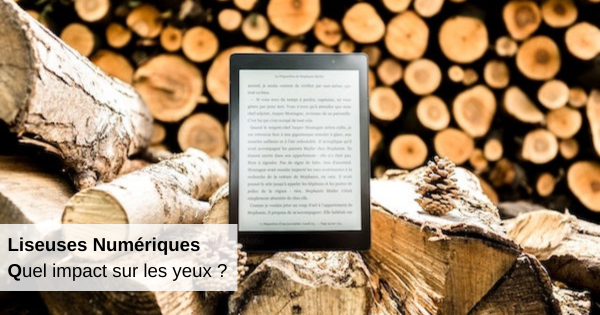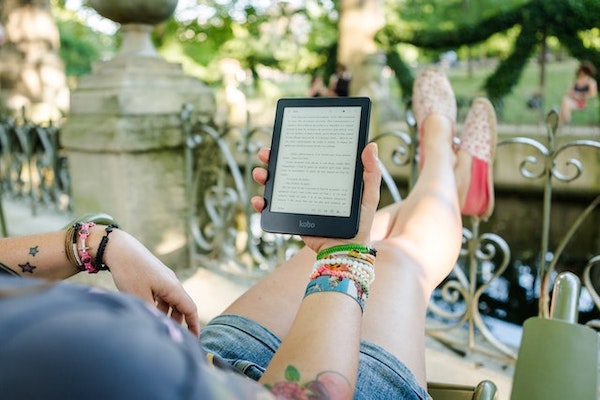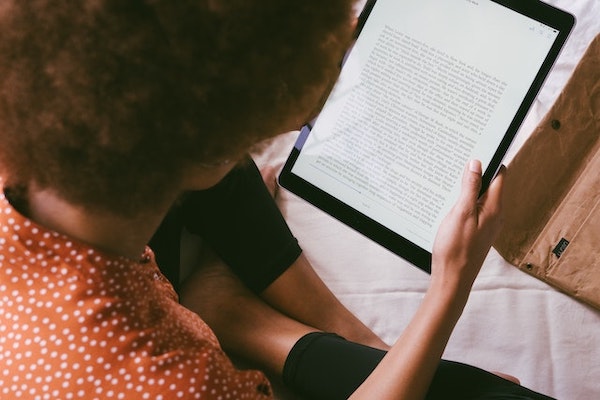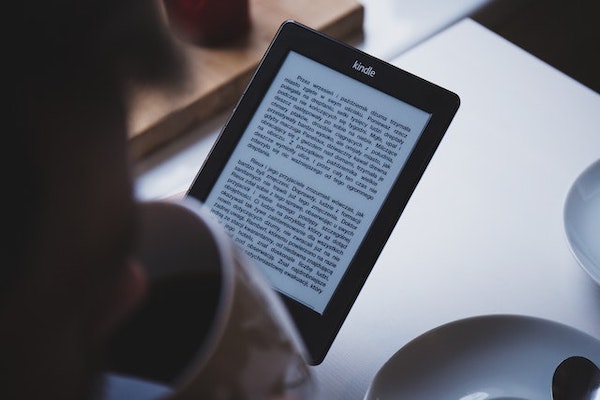Digital readers: what impact on the eyes?

In recent years, e-readers have invaded the market. It must be said that their practicality is well established. Capable of carrying a multitude of works while they weigh almost nothing and take up a minimum of space, they are the ideal tool for the reader, on a trip or not. So, faced with their multiplication, should we worry about our eyes?
Digital readers: a screen like no other
When you try out a digital reader, you immediately notice that the screen is different from those you are used to (tablets, smartphones, television, etc.). precisely because it is not a screen, but an electronic paper (E-paper or E-Ink). This display technique aims to get as close as possible to the paper. It is exclusively reflective and uses ambient light.

Unlike a conventional screen, a digital reader therefore does not need to emit light to operate. Good news for the eyes! Blue light problems then disappear. Therefore, a person who has books in digital format should prefer reading on an e-reader rather than on a tablet.
And the models with lighting?
If the first models of readers, without lighting, did not pose any particular problem for the eyes (apart from refraction problems of course), others arrived on the market and offered lighting to be able to read at night. These are now the majority of models.
Here again, the reader is less dangerous than the screen. Firstly because the diffused light is not directed directly at the eyes, but consists of illuminating the screen via the sides of the reading light. This greatly limits the amount of blue light absorbed by the retina.

On the other hand, like any screen, reading before a period of rest or sleep can disturb sleep. It is therefore recommended, as in the case of the use of a computer or a tablet, to stop reading at least thirty minutes before sleeping, or else to favor reading on an e-reader using a bedside lamp.
So, what assessment for digital readers?
E-readers have undeniable advantages. Their technology allows them to get considerably closer to paper. The possibility of backlighting has brought them closer to digital tablets, thereby increasing the risk to the eyes.

Wherever possible, it is therefore recommended to use them without switching on the lighting. However, as when reading with a paper book, it is still important to rest your eyes regularly, to take breaks so as not to strain your eyesight too much, and to limit screen time with blue light, especially before to go to sleep.
As an optical professional, consider offering a range of rest glasses or ask your customers who say they do not use a lot of glasses. screens. If they read about this type of tool, also favor wearing blue light blocking glass.


